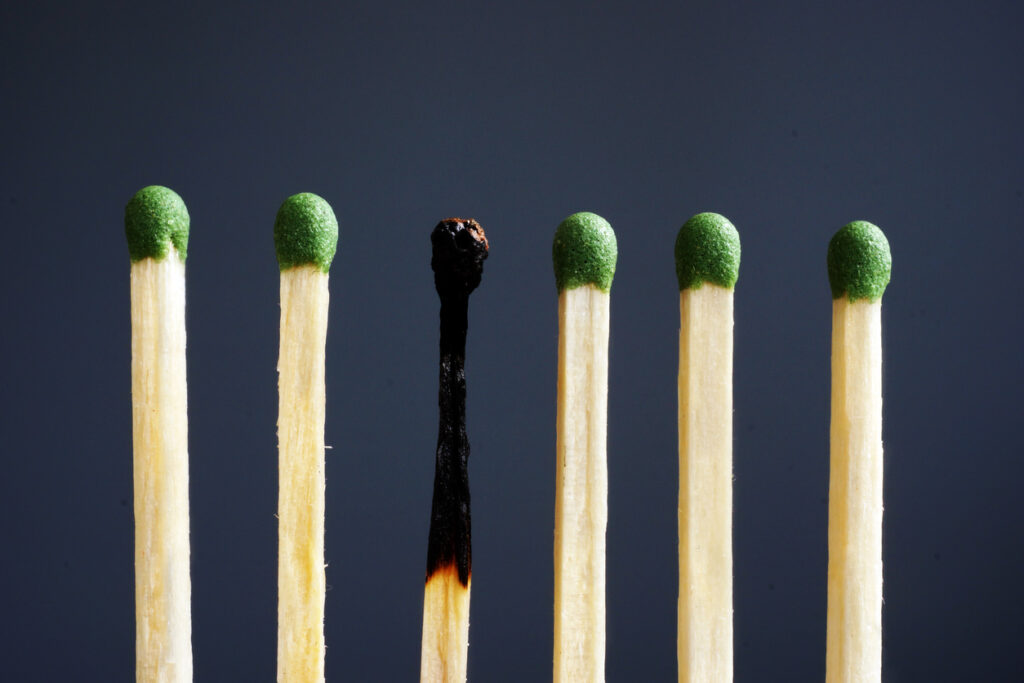HR professionals all over the world were thrown in at the deep end as a result of the Covid-19 pandemic. We’ve been in unchartered territory dealing with the constantly shifting challenges of new working environments and evolving legislation while acting in the best interests of business and employees. We know that burnout is a real risk for many, with Actus research identifying that 34% of the workforce were experiencing lower energy levels than usual, and a further 50% experiencing energy and mood fluctuation, even as lockdown draws to an end.
Could it be that HR professionals are just not very good at prioritising self-development compared to those in other industries?
Let’s face it, for HR professionals, there has been no return to normality as emerging from lockdown has simply introduced new people challenges around flexible furlough schemes (affectionately entitled FFS!) followed by the inevitable restructures and redundancy management.
Despite there being a strong argument for the profession leading from the front during this crisis (many have tried to do so), there are also too many reports of their roles being side-lined and put at risk. This is bizarre, when we think about the vital importance of people in every aspect of business recovery.
Prioritising wellbeing
It would seem logical that those in our profession would need to prioritise their wellbeing more than almost any other given the continued stresses and strains. Many are concerned about the wellbeing of others, but what about themselves? We have been forced into an intense period of reactivity, however, at some point the flame will burnout if we don’t recharge it. The risk with continued reactivity is that it becomes a habit, with little time to consider anything long-term, so why don’t we just stop?
There are many possibilities – we could be just too busy rushing from one crisis to crisis, we might be too busy juggling other family priorities or maybe, we just don’t think we deserve to invest that time on ourselves?
The elephant in the room
I hesitate to suggest this, but having recently read the excellent book Invisible Women by Caroline Criado Perez and in the context of being alert to discrimination, as an industry that is predominantly female, is it possible that we have been too busy carrying out ‘unpaid work’ to have any time left for ourselves? Certainly, it does seem that little has changed, with women taking on the bulk of childcare during lockdown according to data released from the Office for National Statistics.
Could this be why there are disproportionately more men in senior HR roles? Perhaps it’s not because they are naturally more strategic, but because they find the time (have less unpaid work to stop them) to invest in themselves and develop these skills?
This is no criticism of male HR professionals, and I am not saying that female HR professionals are oppressed either. It seems highly likely, however, that many female HR professionals will have been stretched disproportionately during this crisis with the combined pressures of work and increased childcare responsibilities. My concern is that there is a very real potential for some kind of post-traumatic stress rebound for many people if we don’t act now.
I used the word ‘we’ but in reality, I am really hoping that this article ignites the ‘I’ in fellow HR professionals. Perhaps it’s time to tell yourself, ‘I can choose how I spend my time’, ‘I can ask for help’ or ‘I deserve some me time and am going to have it right now’.
Putting your own oxygen mask on first
We’ve all heard the safety announcements when travelling by plane (remember those days?): ‘in the event of an emergency, put on your own oxygen mask before helping others’.
The reality is that in our daily lives, many of us have struggled to do this. Of course, there are many legitimate reasons for this, and these have been unprecedented times for the people profession – but is that really the reason that we tend not to put ourselves first? Could it be that HR professionals are just not very good at prioritising self-development compared to those in other industries? This observation is noted with irony considering that learning and development sit within this profession.
The listening figures for the HR Uprising Podcast seem to support this theory. Episodes on prioritising self-care and practical wellbeing rank way below more strategic or practical topics like HR balanced scorecard or managing underperformance. Of course, investing in any self-development by listening to podcasts is valuable – but surely our own health and wellbeing should be valued at least equally to theoretical topics? It does seem that HR is great at prioritising others but not so good at looking after themselves. Isn’t it time for all of us to lead by example by prioritising self-care and wellbeing?
Here are a few ideas that have worked for others:
- Plan ‘me’ time in first thing in the morning, even if it means setting the alarm a bit earlier, and do something just for yourself, e.g. walk the dog, meditate, read the paper in peace.
- Enforce computer/social media free time, particularly first and last thing at night.
- Ask for help, and take it (including from your spouse and kids).
- Reflect positively on what you have achieved each week and recognise yourself even if others don’t.
- Eat well and drink lots of water, order a recipe box and delegate the cooking.
- Prioritise sleep.
- Listen to podcasts or audiobooks while doing housework.
- See friends, draw on social networks, connect emotionally with others who can provide support.
HR – the unsung heroes
Of course, there is the strong possibility that if you have read this far then you have already got the memo, in which case let’s spread the word. Let’s lead by example by committing time to activities that enhance our wellbeing and develop our minds and careers.
[cm_form form_id=’cm_65a14c3f5da64′]
HR deserves huge respect for the outstanding way that so may have handled this crisis. Very often the unsung hero, this could be the ideal opportunity to deservedly blow the HR trumpet and point out just how vital this profession has been recently and will continue to be. We just need to stop being our own worst enemies!
Interested in this topic? Read Three ways to prioritise mental wellbeing in cautious times.







